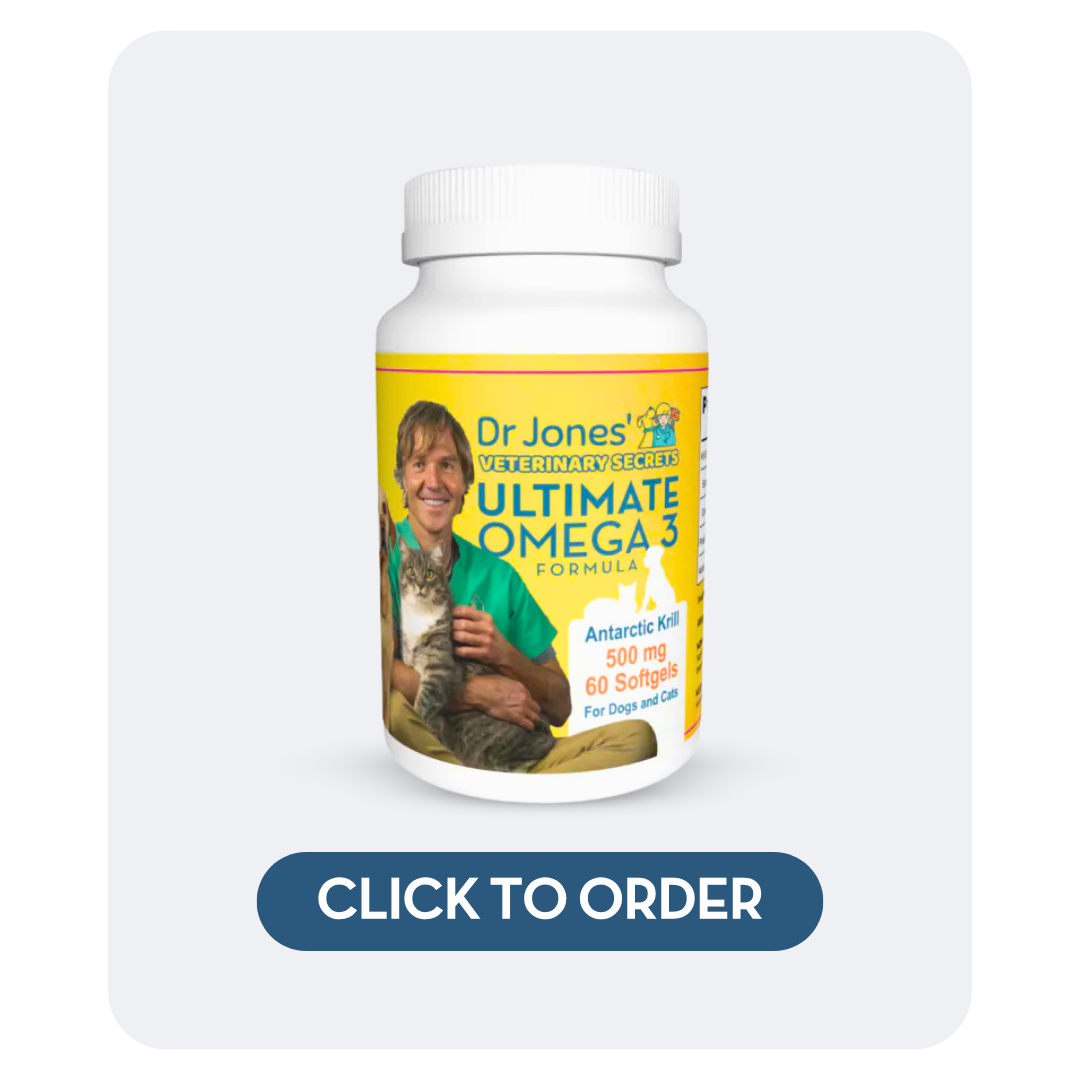Save a Trip to the Vet! Home Remedies for Pet Vomiting
![]()

Dealing with Vomiting and Diarrhea in Pets After Holidays
As a veterinarian, I’ve seen it all—especially during the holidays when food seems to be everywhere! Unfortunately, many dogs experience vomiting and diarrhea after indulging in foods that aren’t suitable for them. Whether it’s too much turkey, gravy, or something else they shouldn’t have, it’s a common issue that pet owners face.
The Holiday Food Dilemma
During my time in practice, it was almost inevitable that I would see dogs suffering from vomiting and diarrhea after the holidays. You can imagine how easy it is for them to sneak a bite of turkey or gravy—foods that are just too rich and heavy for their sensitive stomachs.
Murray, Our Food-Loving Cat
At home, our last cat, Murray, was no exception. He absolutely loved food, and occasionally, he would get a little too adventurous with what he ate. Unfortunately, this often led to the dreaded outcome—diarrhea. It’s a reminder that even our beloved feline companions can sometimes find themselves in discomfort from eating the wrong things.
Pippi’s Food Fiascos
Pippi, the famous Labrador featured in many of my videos, also had her share of gastrointestinal mishaps. While these weren’t necessarily related to the holidays, she certainly had her fair share of vomiting and diarrhea. If given the chance, I’m confident she would have tried to eat an entire turkey herself! But as much as we love treating our pets, it’s important to be cautious about what they eat.
How to Help Your Pet After Digestive Upset
When your dog or cat suffers from an upset stomach, there are several things you can do to help. In my experience, Probiotics and Digestive Enzymes are two effective options. These supplements can help restore the balance in your pet’s digestive system and ease discomfort. Fortunately, we have many “intestinal upset” supplements available that can assist in managing these symptoms.
Taking care of your pet’s digestive health, especially after indulging in foods they shouldn’t have, is key to helping them feel better. Keep in mind that moderation is important, and always be mindful of what your pets are consuming—especially during the holidays!


Vomiting and Diarrhea in Pets: What You Need to Do
Vomiting and diarrhea are two of the most common reasons dogs and cats end up in the veterinary clinic. A frequent cause for this is ‘garbage gut’ or gastritis, where pets eat something they shouldn’t—no surprise if you’re dealing with a Labrador—and end up with vomiting and diarrhea.
So, what should you do when your pet experiences these symptoms? Here’s a simple guide to help you assess and treat your pet at home.
1. Assess Your Pet’s Condition
The first step in managing vomiting and diarrhea is to assess your pet’s overall condition. Ask yourself:
-
Is your pet still alert, or are they very lethargic?
-
Are they vomiting repeatedly, or just a few times?
-
How hydrated are they? Check their gums—when you touch them, they should feel moist. If they’re dry or tacky, your pet might be dehydrated.
2. When to Try Home Remedies
If your pet is still alert, only vomiting a few times, and not severely dehydrated, you can try a few home remedies. However, always err on the side of caution—if you’re unsure, it’s best to consult with a veterinarian.
3. Fasting and Hydration
-
For Dogs: No food for 24 hours—this means no treats, no food at all. Offer plenty of fresh water to keep your pet hydrated.
-
For Cats: Offer small amounts of canned food, but keep it light.
Additionally, you can add an electrolyte solution to your pet’s water to help replenish lost electrolytes. If your pet isn’t drinking, you can syringe in fluids at a rate of about 100 ml per 10 lbs of body weight per day (roughly 1/2 cup per 10 lbs). More serious cases might require subcutaneous fluids, which can be administered at home with guidance from your veterinarian.
4. Relieving Vomiting
If your pet is vomiting, there are a few remedies you can try:
-
Peppermint Tea: Peppermint isn’t just for freshening breath; it also has an antispasmodic effect that can help soothe your pet’s stomach and reduce nausea and indigestion.
-
Chamomile Tea: Known for its calming properties, chamomile tea can help ease gut discomfort, reduce stomach acid, and relieve pain due to its anti-inflammatory effects.
-
OTC Antacid – Famotidine (Pepcid): A common and effective antacid for pets. The typical dose is 2.5 mg per 10 lbs, given 2-3 times a day. It works well for both dogs and cats and can help prevent further vomiting.
5. Managing Diarrhea
For diarrhea, there are several options, but remember that some treatments are specific to dogs only:
-
Pepto-Bismol (For Dogs Only): A traditional remedy for dogs, Pepto-Bismol can help with diarrhea. The dose is 1 ml per 10 lbs of body weight, given three times daily, but never use it for more than 7 days.
-
Kaopectate (For Dogs and Cats): Kaopectate is a safe and effective treatment for both dogs and cats. It contains attapulgite clay, which binds toxins and reduces fluid in the intestines. The typical dose is 0.5-1.0 ml per pound of body weight, administered every 4-6 hours. Treatment should last no longer than 1-2 days. Important: Never use the old version of Kaopectate, which contains bismuth salicylate—this is toxic to cats.
-
Imodium (Loperamide): This is another option for managing diarrhea, but use with caution. Avoid giving it to Collies or Collie mixes. The dose is 0.5 mg per 10 lbs of body weight, given three times daily. For example, a 40 lb dog would get one 2 mg tablet three times a day.
6. Natural Herbal Remedy for Both Vomiting and Diarrhea
Slippery elm bark powder is a great natural remedy that works for both vomiting and diarrhea in dogs and cats. It’s especially beneficial for pets with digestive issues or inflammatory bowel disease (IBD). Not only does it help with nausea, vomiting, and diarrhea, but it also improves coat dryness and dandruff.
Slippery Elm Bark Dosage:
-
For powder: 1/8 to 1/4 teaspoon per 10 lbs of body weight, once or twice a day.
-
For capsules: One 350-400 mg capsule per 10 lbs of body weight, once a day. You can either give the capsule whole or open it and sprinkle it on your pet’s food.
7. Probiotics for Digestive Health
For dogs and cats prone to digestive issues, it’s essential to keep their gut healthy. A good-quality probiotic supplement can help replenish the beneficial bacteria in their gut, supporting overall digestive health and immune function.
Our Dr. Jones’ Ultimate Probiotic Formula for Dogs and Cats is a great option, along with other formulas like:
-
Dr. Jones’ Complete Digestive Care Soft Chews (with digestive enzymes and probiotics)
Conclusion
Vomiting and diarrhea can be worrying, but many cases can be managed at home with the right approach. Always assess your pet’s condition, keep them hydrated, and try the remedies outlined above. If the symptoms persist or worsen, don’t hesitate to seek veterinary help.

P.S. For ongoing digestive health, I recommend adding a probiotic to your pet’s daily routine. Probiotics are essential for maintaining a healthy gut, especially in pets prone to digestive issues.










